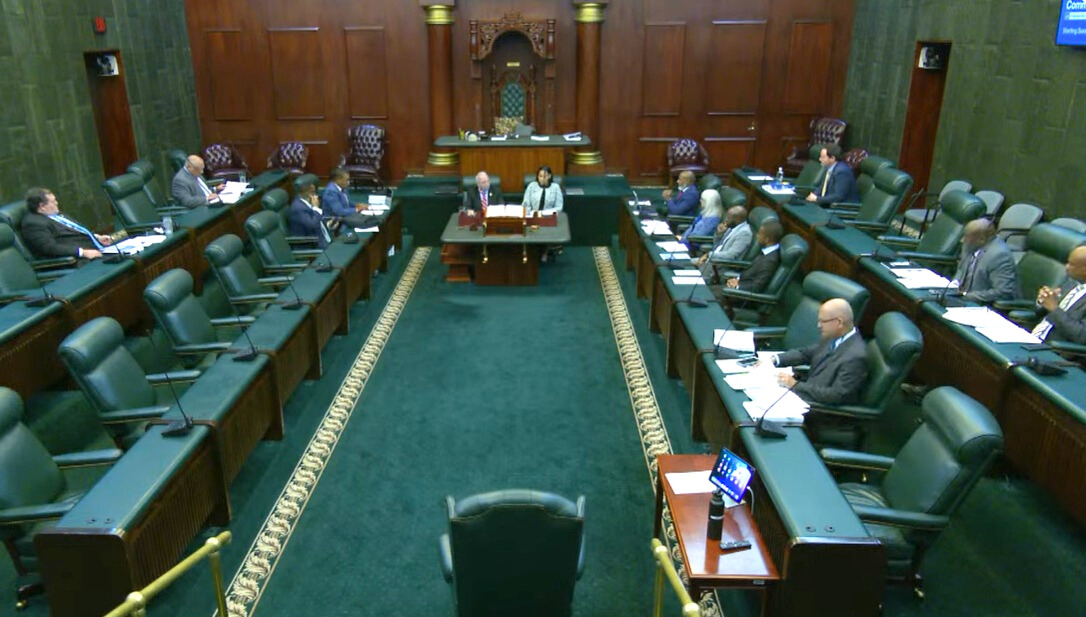By Opposition Deputy Leader,Sarah Bridge
Copyright caymancompass

Higher immigration fees and stamp duty could be key ways of increasing revenues to strengthen Cayman’s finances on top of measures already working their way through Parliament, the Public Accounts Committee was told.
The committee met on 4 Sept. to discuss the long-term financial future of the Cayman Islands in the light of the auditor general’s performance report, ‘Improving Financial Accountability and Transparency: Long-term Financial Sustainability’, which warned that Cayman is at risk of not being able to meet its financial commitments unless it tackled the growing gap between spending and income.
Hard look at immigration
Appearing in front of the committee, Deputy Governor Franz Manderson was asked by Opposition Deputy Leader Kenneth Bryan what the government needed to do in respect to increasing revenues.
Manderson replied, “We haven’t raised a number of fees in many years and I know that is something that we should look at very carefully.”
He added, “I think immigration should be the first area that we look at. We haven’t raised immigration work permit fees probably since I was at immigration. I don’t think we’ve had a really hard look at that.”
Manderson, who served as chief immigration officer from 2004 to 2009, said that his office had found that the UK charges double the price for naturalisation as the Cayman Islands.
“It’s [one of] those areas where I think we can look at, that is not going to affect your average Caymanian,” he said. “It’s not going to raise the cost of living directly to some of our people.
“Obviously, if you raise work permit fees dramatically, that could be passed on to the consumer, but I think we could find a middle ground to look at some things that people will be able to implement without passing it on to the consumer. But immigration is the number one area that I think we should look at.”
Financial Secretary and Chief Officer for the Ministry of Finance and Economic Development Kenneth Jefferson also had suggestions for improving government finances when he addressed the committee.
“The obvious thought would be [that] government needs to increase its revenues and/or lower its expenses,” he said. “On the revenue side, the revenue growth increases can actually come from existing revenue sources being increased.”
Jefferson said that, given the recent fee increases to the financial services industry that would net an additional $67 million annually, the sector would be reluctant to bear any more costs, but he said that stamp duty was a “fruitful” area for increased revenues.
Asked by Bryan about increasing revenues, he said, “I think the one area that does come to mind immediately would be the stamp-duty regime; that is perhaps a promising area.”
Deleted: “I know that the Lands and Survey Department has a proposal in mind to change the regime,” he added.
Stamp duty on land transfers totalled $78.5 million in 2023, $88.7 million in 2024, and was expected to be in the region of $90 million for 2025.
Government revenues in some sectors are already expected to increase, Jefferson said. Increased fees to the financial services industry introduced at the start of 2025 are estimated to give an additional $67 million this year, and changes in connection with immigration fees and work permits, which are awaiting Cabinet and then Parliament approval, are expected to bring in an additional $7.2 million.
Planned increases by Customs and Border Control, which require a change in regulations, are expected to raise a further $2.3 million.
Work-permit fees, Jefferson said, brought in revenues of $90.7 million in 2022, $94.4 million in 2023, and $107.7 million in 2024, with an estimated $98 million by the end of 2025.
“It is a significant component of government’s revenue,” he said, “and if the government makes decisions that cause work-permit fees to decrease and decline, then it would need to make up for it from some other revenue source, or it would need to reduce expenditure by a similar amount so as to not decline its fiscal position.”
Cayman Islands Chamber of Commerce, CIREBA and Cayman Finance have been contacted for comment.



